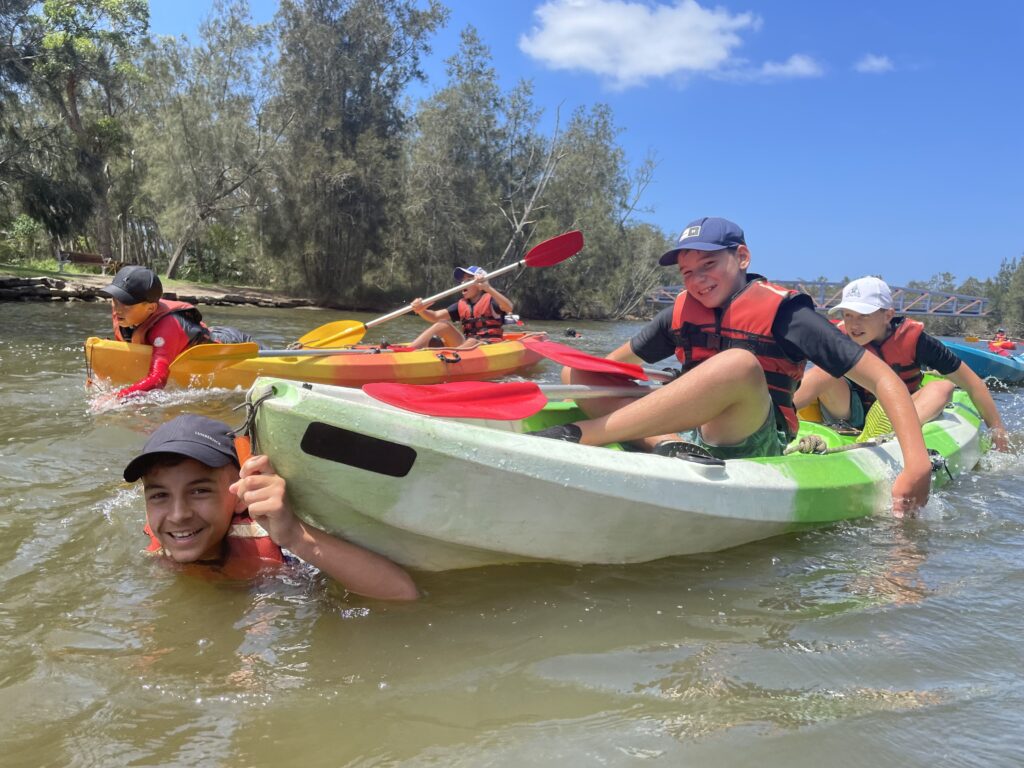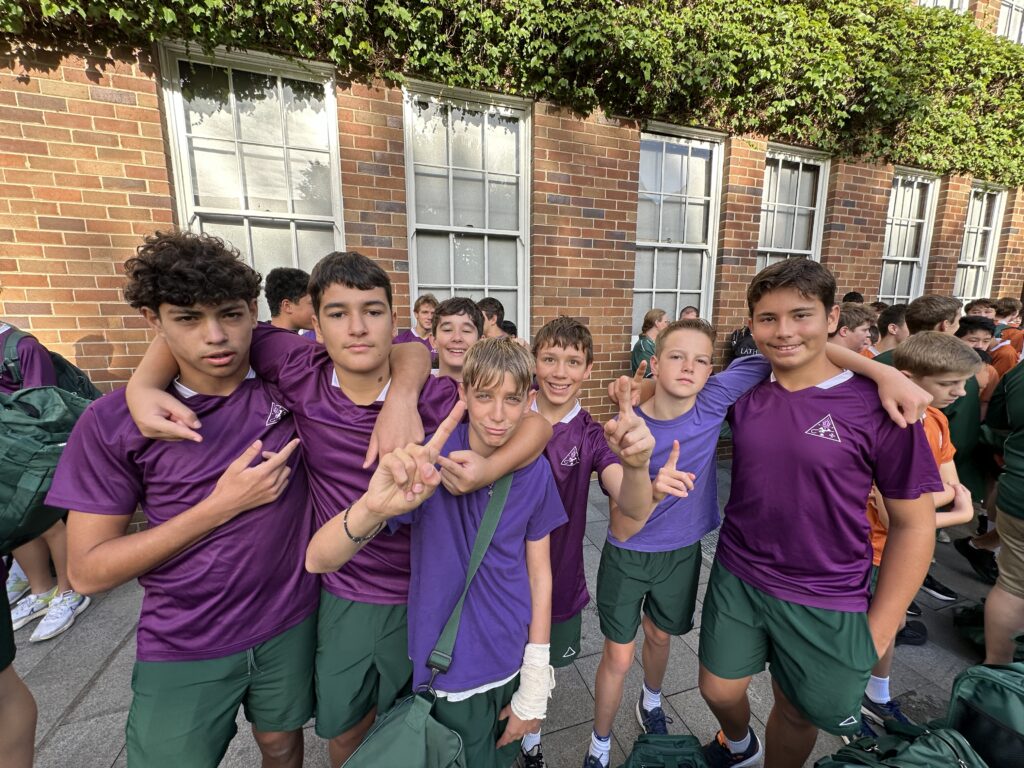Building strong connections, together.
In the first few weeks of Term 1, Trinity has welcomed more than three-hundred and fifty new students to the School. These students have entered every cohort at the School from Pre-K to Year 11. In total, around two hundred and fifty new families have joined the extended School community this year.
It is a daunting experience to start at a new school, for both students and parents. There is a flood of unfamiliar names and faces, references get made to places, activities, and platforms that are not immediately recognised, and acronyms abound. There is a steep learning curve involved in entering a new school community.
Every person who already feels at home in the School has also been through those challenges in one form or another. The stresses are inevitable, but they are not enduring. Soon, Trinity’s new students and families will be the old hands. It will just take perseverance and patience.
Boys build connections and relationships by doing things together. Shared experiences are the currency with which the sense of belonging is bought. By disposition and personality, some boys are very happy to throw themselves into the centre of activity. Others prefer to observe from the periphery, forming their friendships more gradually. Some find their people quickly, others take more time.
Trinity’s Headmaster, Mr Tim Bowden, conducts exit interviews with Year 12 students in their final few months at Trinity.
“I invite them to tell me about their experience of the School. We range over all sorts of topics, but one of the things that I am always keen to know has to do with their relationships,” Mr Bowden says. “In a big school, where do their friendships form?”
The answers, he says, vary massively.
“For some, the closest friendships formed in infancy, when the boys were in Pre-K or K, and have endured since. For others, the closest connections are with the boys in their classes in the senior years. For some, the House is the key context; gathering in House groups twice each day for six years and competing together in House competitions underpins deep friendship. For many, shared sporting or co-curricular endeavours is the locus of connection, for others it is the shared commute or a common neighbourhood, and for still others it is a familiar ethnic or cultural background. For some the friendship groups have been stable, and for others it has been more fluid over the years.”
Their varying experiences speak to the breadth of Trinity. At such a large and complex school, the students will develop a sense of belonging and connection that is multi-stranded.
“It is good for boys to have multiple peer groups, as it develops their resilience in the face of the inevitable bumps and frustrations that happen on the journey through childhood and adolescence,” Mr Bowden says.
Though these are the experiences of Year 12 students leaving the School, their perspective is an important one for those just beginning their journey at Trinity.
“In these early weeks of the boys’ experience of their new school, concerns about their connections to peers can be understandably prominent in the thinking of both students and parents. My reassurance to you, based on my observation of this School over the last six years, and the collective expertise of the staff of the School developed over decades of experience, is that the friendships will come. Your boy will find his people and this School will be his School.”
“Be patient, and help your son to be engaged. The shared experiences are the key, and there is no shortage of the opportunities.”



















